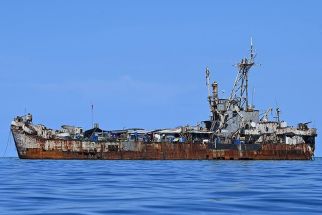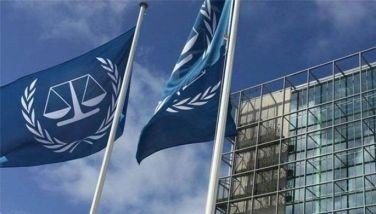Stop ‘economic Talibans’ from killing local industries — solon
October 5, 2001 | 12:00am
Rep. Robert Ace Barbers (Lakas, Surigao del Norte) urged the government yesterday to stop the "economic Talibans" from killing local industries.
By economic Talibans, Barbers said he meant smugglers and importers who are dumping cheap products here and whose latest victim is the Surigao-based Picop Resources, once Southeast Asia’s biggest paper mill.
Picop announced on Monday that it would shut down operations by the end of this month, joining a list of industrial firms in Mindanao which have closed shop.
It cited "low prices of competing products being imported at dumped prices" as its principal reason for closing down.
Barbers said "unabated smuggling and dumping of imported products are the reasons why Mindanao’s landscape is now littered with the carcasses of factories which unfair foreign competition killed."
He said Mindanao was once the site of the largest paper mill, steel mill and chemical manufacturing complex.
"Cheap steel imports, aggravated by a botched-up privatization plan, led to the closure of National Steel Corp. in Iligan City in 1999," he said.
He pointed out that in the case of rice, smuggling has dampened local prices to the prejudice of Filipino farmers.
"The rice is brought in right under the noses of our authorities," he said.
He stressed that billions of pesos in investments in local industries are in peril "due to the failure of the government to curb smuggling or at least protect the affected producers from the surge of imports."
Meanwhile, another Mindanao solon proposed yesterday the enactment of a law that would require government contractors to provide guarantees for their finished projects within a reasonable time frame.
Rep. Juan Miguel Zubiri (Lakas, Bukidnon) said the guarantees would answer for wear and tear and substandard work arising from graft and corruption.
"The public often complaints of many newly constructed roads that develop cracks in a matter of days and therefore need costly repairs. This means unnecessary costs to the government and inconvenience to our people," he said.
He said his proposed law would obviate such costs and inconvenience as it would compel contractors to do their job well.
He added that on the part of corrupt government personnel, they would also be made answerable for the defective projects as his proposed legislation seeks heavy penalties for them.
By economic Talibans, Barbers said he meant smugglers and importers who are dumping cheap products here and whose latest victim is the Surigao-based Picop Resources, once Southeast Asia’s biggest paper mill.
Picop announced on Monday that it would shut down operations by the end of this month, joining a list of industrial firms in Mindanao which have closed shop.
It cited "low prices of competing products being imported at dumped prices" as its principal reason for closing down.
Barbers said "unabated smuggling and dumping of imported products are the reasons why Mindanao’s landscape is now littered with the carcasses of factories which unfair foreign competition killed."
He said Mindanao was once the site of the largest paper mill, steel mill and chemical manufacturing complex.
"Cheap steel imports, aggravated by a botched-up privatization plan, led to the closure of National Steel Corp. in Iligan City in 1999," he said.
He pointed out that in the case of rice, smuggling has dampened local prices to the prejudice of Filipino farmers.
"The rice is brought in right under the noses of our authorities," he said.
He stressed that billions of pesos in investments in local industries are in peril "due to the failure of the government to curb smuggling or at least protect the affected producers from the surge of imports."
Meanwhile, another Mindanao solon proposed yesterday the enactment of a law that would require government contractors to provide guarantees for their finished projects within a reasonable time frame.
Rep. Juan Miguel Zubiri (Lakas, Bukidnon) said the guarantees would answer for wear and tear and substandard work arising from graft and corruption.
"The public often complaints of many newly constructed roads that develop cracks in a matter of days and therefore need costly repairs. This means unnecessary costs to the government and inconvenience to our people," he said.
He said his proposed law would obviate such costs and inconvenience as it would compel contractors to do their job well.
He added that on the part of corrupt government personnel, they would also be made answerable for the defective projects as his proposed legislation seeks heavy penalties for them.
BrandSpace Articles
<
>
- Latest
- Trending
Trending
Latest
Trending
Latest
Recommended































